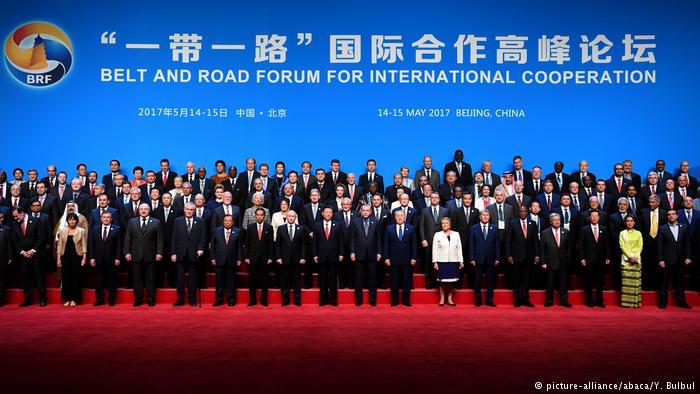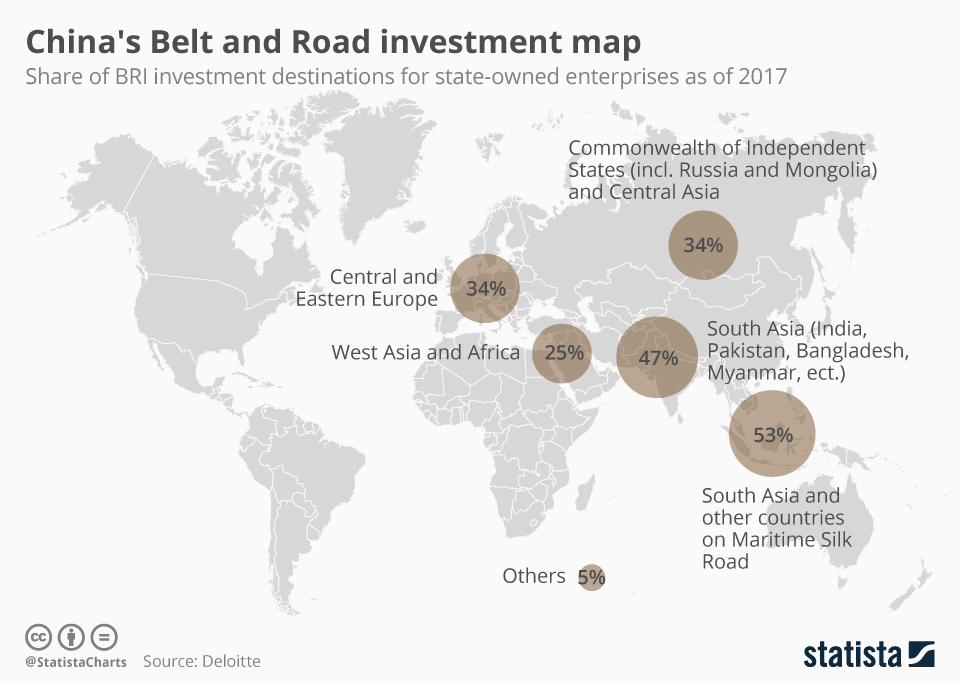This week the US State Department confirmed it is snubbing China’s second major international Belt and Road summit, to be held in Beijing this month. This comes after the US sent a high level representative to last year’s summit, and as President Xi Jinping — seeking to deflect criticism related to the ambitious plan counted at multiple trillions of dollars — has for the first time moved to more clearly defined specific BRI projects while imposing rules regulating its scope.
Bloomberg cited unnamed officials privy to recent controversy over Belt and Road branded projects, who noted “Unchecked use of the name on projects has created confusion about the initiative’s scope and damaged its reputation abroad.” And this touches on Washington’s scathing critique issued Tuesday as reasons for not attending the Beijing-hosted summit:
“We will continue to raise concerns about opaque financing practices, poor governance, and disregard for internationally accepted norms and standards, which undermine many of the standards and principles that we rely upon to promote sustainable, inclusive development, and to maintain stability and a rules-based order,” said State Dept. spokesman Robert Palladino.
Palladino followed with, “We have repeatedly called on China to address these concerns,” according to Reuters. Last year’s summit was attended by the senior White House official for Asia, Matt Pottinger; but now the US has made clear that “We will not send high-level officials from the United States.”
President Xi will host 40 world leaders during the late April meeting at a time the BRI has come under increased scrutiny, after promised infrastructural projects connected to the so-called “project of the century” first unveiled in 2013 to rebuild ancient trading routes across Eurasia, failed to get off the ground.
Bloomberg cites the particular recent example of a massive rail project in Malaysia:
Governments around Asia are reassessing Chinese investments. Malaysia is in talks with China on a reduced price tag for a $20 billion rail project it scrapped after Prime Minister Mahathir Mohamad took power. Myanmar scaled back a port deal struck under its previous military regime, while heavily indebted Maldives booted out a pro-China administration last year.
Countries with deepening BRI programs and ties are increasingly facing criticism both domestically and internationally that they are essentially allowing Chinese economic colonialism with open arms.
This echos US Vice President Mike Pence’s warning last November that Asia-Pacific countries should be fearful and wary of China’s “constricting belt or a one-way road” which leaves countries on the hook for unsustainable debt for ill-defined projects.
The Editor-in-chief of China’s the Global Times was quick to lash out upon news of the US planned absence:
But more countries and state leaders will participate in the Belt and Road summit. Many of US’ allies will send officials to attend. Absence of the US is Washington’s embarrassment, not Beijing’s.😊 https://t.co/t9teRIRz8g
— Hu Xijin 胡锡进 (@HuXijin_GT) April 3, 2019
China has brushed off such “colonizing” accusations as “prejudiced” while pointing out it doesn’t force debt on countries. Chinese officials have also said part of the problem is that some Chinese-related regional projects being touted as BRI are not actually BRI.
To end the confusion, Beijing says it will eventually publish “a list of legitimate Belt and Road Initiative projects officially acknowledged by the Chinese government.”
This list is to “include both state-owned enterprises and private companies, helping authorities improve regulation of projects,” according to an anonymous source cited by Bloomberg.
You will find more infographics at Statista
Perhaps the most direct accusation coming out of a recent BRI signatory nation was from Italy’s Deputy Premier Matteo Salvini, who warned it risked “colonizing Italy”.
President Xi has long attempted to fight the growing criticisms, telling a BRI symposium last summer:
“Belt and Road is an initiative for economic cooperation — instead of a geopolitical alliance or military league — and it is an open and inclusive process rather than an exclusive bloc or ‘China club’”.
Though by all indications from statements this week Washington is set to completely snub this month’s BRI summit, the State Department indicated it could send a low level staffer as an observer.
via ZeroHedge News http://bit.ly/2ImaCqZ Tyler Durden

